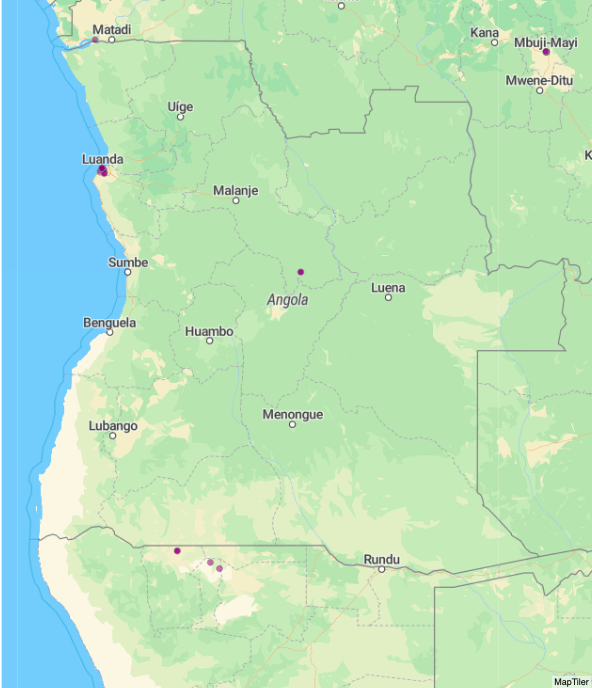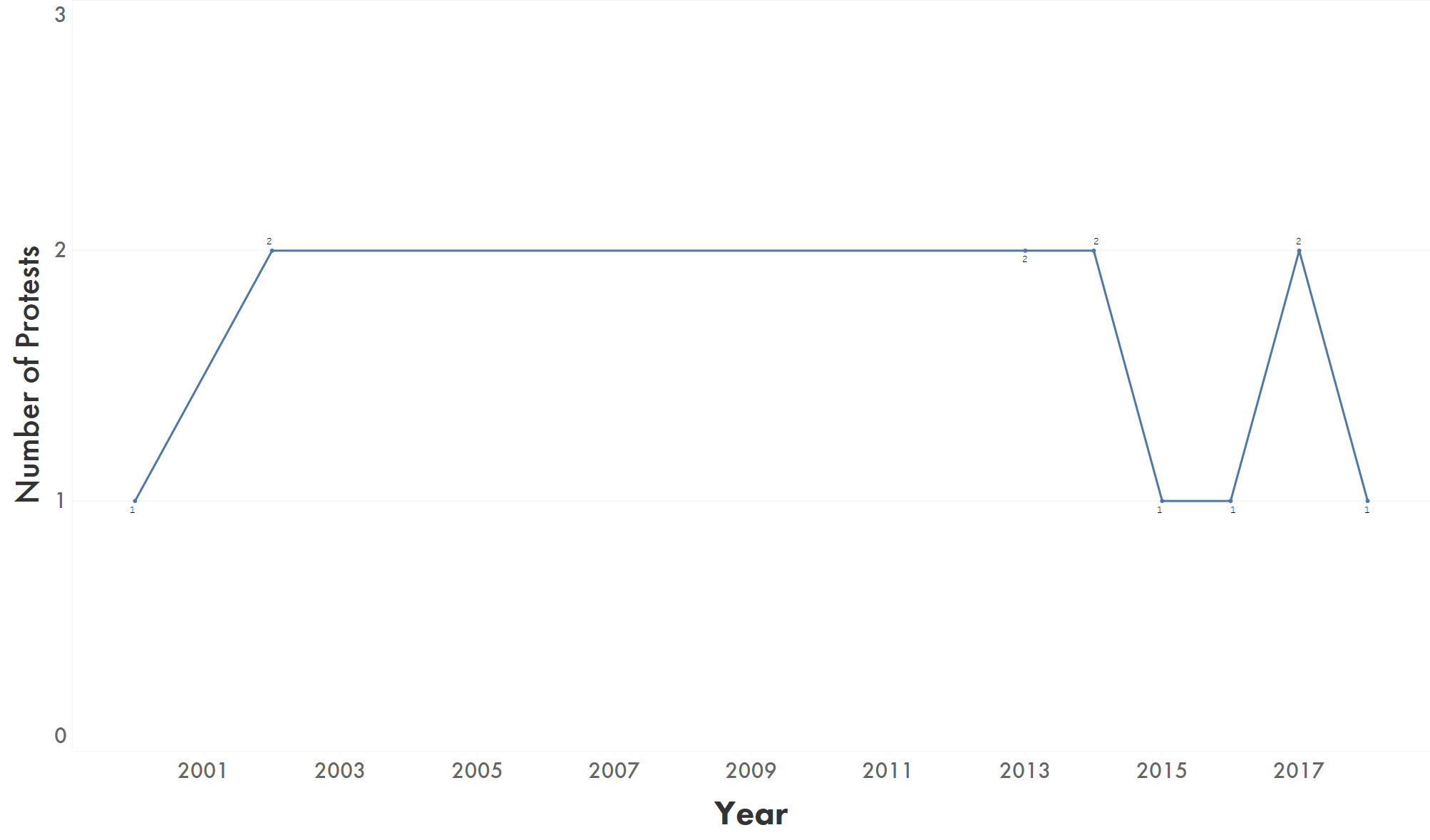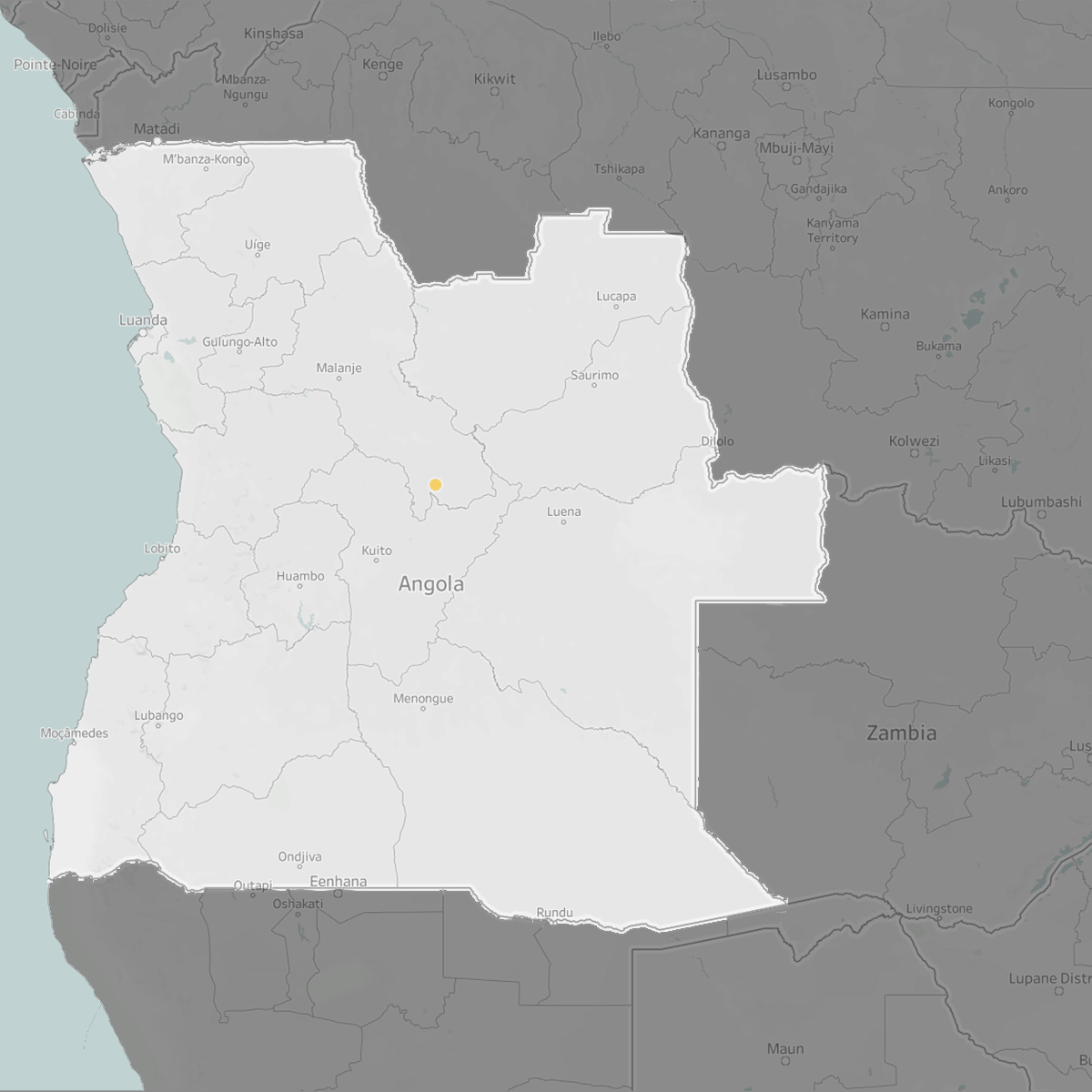Angola
Angola has a population of 18 million; about 59% of Angolan reside in urban spaces. Angola's government is a republic, but its democracy is held by a single party. Angola's major exports are oil, diamonds, and gas. Its capital city is Luanda has a population of 4.5 million. The country was under Portuguese influence and rule for over 500 years. An anti-colonial struggle began in 1961 for independence, which was achieved in 1975. Angola's new constitution established a one-party state headed by a president, which in 1977 was declared a Marxist-Leninist vanguard party. The country was soon in a civil war that lasted 27 years and ended in 2002. The government amended their 1975 Consitution in 1992, which produced a multiparty system, abolished the death penalty, and prioritized the people's rights. The constitution was amended again in 2010 to eliminate the prime minister post and establish a vice president position. The president is limited to two five-year terms, and the National Assembly holds the legislative power in the country. Angola is divided into 18 provinces.

DATA VISUALIZATIONS


PROTESTS
Angola-October-2002
Luanda, Agostinho Neto University
Students protest against a strike by academic staff to demand higher wages. (Primary Source)
Angola-October-2013
Luanda, Ministry of Education
Flash Mob protests were used to protest the rule of president Jose Eduardo Dos Santos, in a bid to circumvent laws that require permission to protest. The longest protest occurred for 25 minutes in front of the Ministry of Education. (Primary Source)
Angola-January-2016
Luanda, Independence Square
University students mobilized by the Angolan Students' Movement called for a march in Lunda to protest tuition hikes. (Primary Source)
Angola-June-2014
Luanda, Independent University of Angola
Students protest the increase in tuition. (Primary Source)
Angola-June-2017
Luanda, Catholic University of Angola
Students protest a hike in school fees. (Primary Source)
Angola-June-2015
Luanda, Luanda
17 activists were jailed for organizing a book reading on Dictatorship to Democracy: A Conceptual Framework for Liberation, by Gene Sharp. The charges brought against them include rebellion and civil disobedience. (Primary Source)
Angola-September-2013
Luanda, Independence Square
The Angolan Revolutionary Movement, consisting of students and young professionals called for the protest against the rule of then President Jose Eduardo Dos Santos. (Primary Source)
Angola-September-2002
Luanda, Agostinho Neto University
Teachers at Agostinho Neto University strike to demand higher wages. (Primary Source)
Angola-June-2014
Luanda, Methodist University of Angola
Students boycott classes to protest their obligation to pay school fees for the month of May. (Primary Source)
Angola-August-2000
, Luanda
Angolan teachers strike to protest higher wages after months of negotiation with the government. (Primary Source)
Angola-April-2017
, Luanda
Angolan teachers embark on a nationwide strike for higher pay. (Primary Source)
Angola-April-2018
Luanda, Luanda
Angolan primary and secondary school teachers embark on a nationwide strike to demand higher wages. The strike was called by the Teachers Trade Union. (Primary Source)